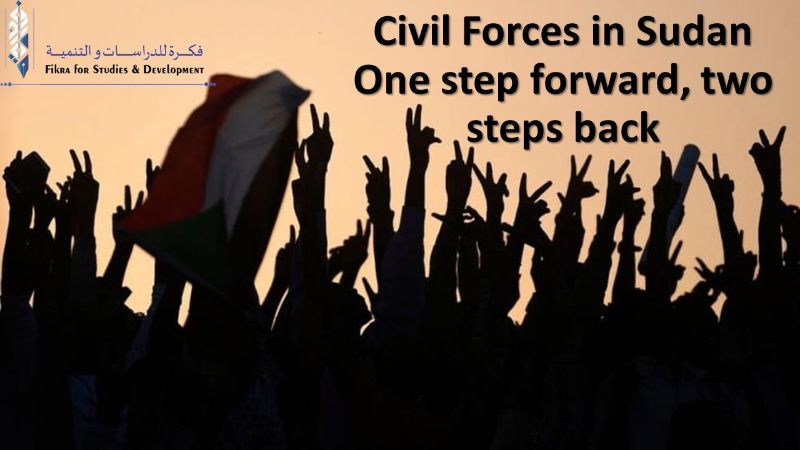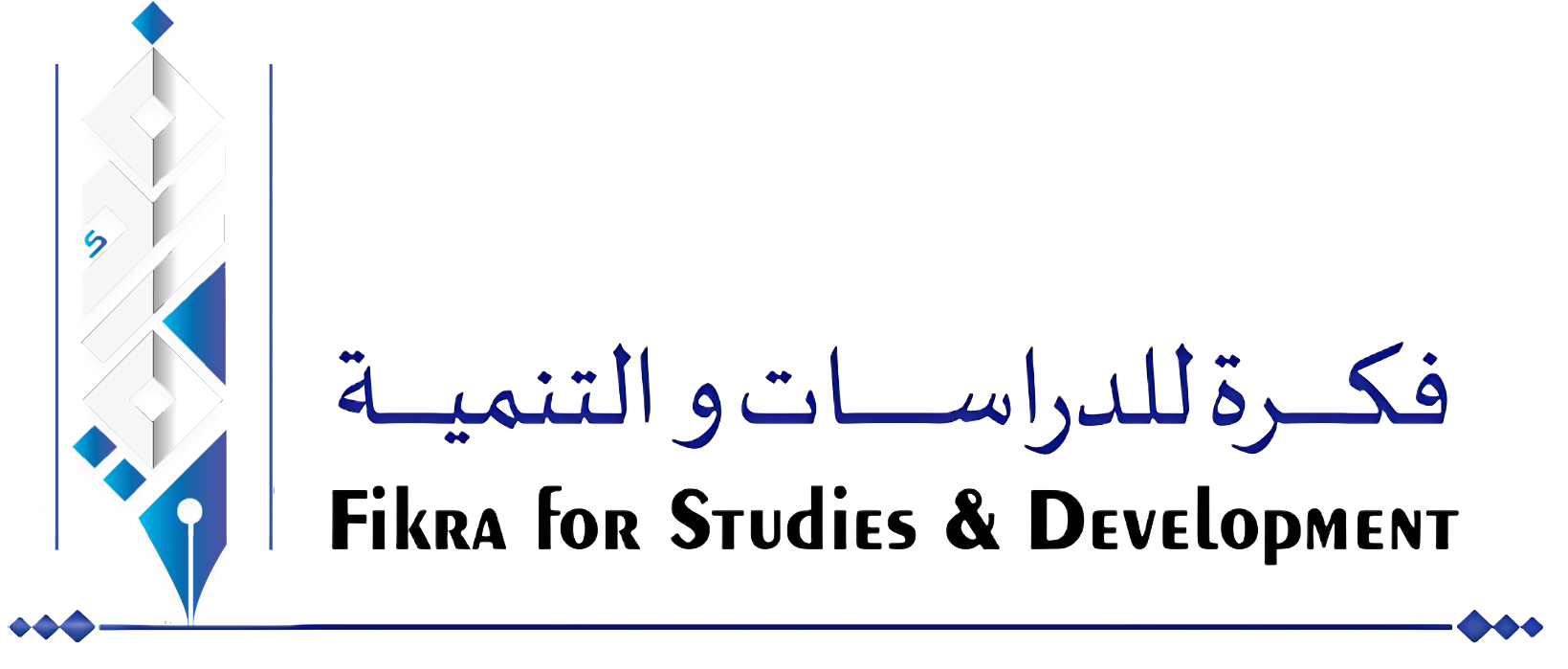Civil Forces in Sudan: One step forward, two steps back
Civil Forces in Sudan: One step forward, two steps back

Dr. Elshafie Khidir Saeed
December 2023
In spite of the numerous criticisms and concerns raised regarding the organization and atmosphere surrounding the gathering of Sudanese civil forces in Addis Ababa, Ethiopia, from October 23rd to 26th, under the banner of consultation, preparation, and formation of a unified civil coalition against the ongoing conflict, it is important to acknowledge the developments that unfolded during this event. Getting the assembly together and setting up the first hierarchy for the Coordination of Civil Democratic Forces (Taqaddum), which is in charge of preparing the groundwork for the first convention of the Civil Front, is a good step toward bringing the civil groups together and giving them structure in order to work for stopping the ongoing conflict.
This crucial measure warrants endorsement while simultaneously necessitating prudence to avert any deficiencies in the preparations for the inaugural assembly. On November 2, the first meeting of the preliminary leadership body was held virtually, and its results were in the same positive direction when it stressed the importance of communicating with the civil forces that did not participate in the Addis Ababa preparatory meeting in order to hold the founding conference at its agreed-upon time, after eight weeks, i.e., at the end of this December, with the aim of building the largest civil front that contributes to ending the war and re-establishing the Sudanese state.
However, the positive shape faded quickly. Things have taken a negative and confusing turn, that we have often seen in the recent performance of Sudanese civilian forces, as if they were taking one step ahead and two steps back.
Two incidences have revealed an unfavorable and confusing trend.
On November 18, the leadership of the Forces of Freedom and Change (FFC) announced at a news conference following the end of its meeting in Cairo that it remained in contact with the two warring parties, had developed a road map to end the war, and had formally requested to meet directly with the two warring parties to discuss the map. After that, it will discuss it with the Coordination of Civil Democratic Forces (Taqadum), as well as with other political groups, social organizations, and civil forces outside of Taqadum that support peace and democratic transformation.
The second incident took place on November 29, when the Civil Democratic Forces (Taqadum) Coordination Body announced that its Executive Office, following extensive discussions over the previous few days, had approved a Declaration of Principles and a draft road map to end the war, achieve peace, and establish a sustainable democratic civil transition. They also added that they will immediately launch a comprehensive internal and external effort to advance the map’s principles and press for a peaceful and negotiated political solution that will stop the war in our country.
Why do we consider the two incidents to be a negative and confusing trend in the performance of civil forces? Firstly, it goes back to what the Forces of Freedom and Change announced: that they had prepared a road map to stop the war, which they would discuss with both sides of the fighting and then with the rest of the civilian forces inside and outside (Taqadum), which means that they had prepared the map and would discuss it alone and in isolation from the rest of the other civilian forces, especially the Coordination Committee (Taqadum), which FFC contributed to its formation. Thus, it positioned itself as a body parallel to (Taqadum) and not part of it. This seriously harms the hopes for unity of the civil forces.
While Freedom and Change is within its rights to convene separately, any resolutions or recommendations it may have on the matter of the Sudanese conflict must be brought before the (Taqadum) coordination and debated with the other constituents of the coordination in order to reach a consensus. Otherwise, urging the Sudanese civil forces to unite and create coordination would be pointless.
Second, the Addis Abeba preparatory meeting last October decided to form the preliminary leadership of the Coordination of Civil Democratic Forces (Taqadum), with the sole purpose of preparing for the Coordination’s establishing conference at the end of this December. Preparation, as we understand it, includes communicating with all forces to ensure everyone’s participation without exclusion or neglect, discussing with other forces their observations and the agenda and what is expected to emerge from the conference, and holding preparatory workshops and seminars on the issues that the conference will decide on, such as the declaration of principles, a road map to stop the war, and reaching consensus on logistical issues, including where the conference will be held and how to finance it, while ensuring complete transparency in all of these issues so that the information is available to everyone and with their consent… and other preparation issues.
Instead of all of that, the Executive Office of Coordination of (Taqadum), which is a preliminary preparatory body, preempted the conference by issuing a declaration of principles and a road map to end the war, which is what the conference is supposed to produce. This behavior killed any sense of civilian unity.
We do not know the reasons behind this confusion and negative trend, but in similar other experiences, the reasons are usually related to a lack of knowledge and experience, or underestimating others and seeing that the conference will not add anything new but rather will embrace an imprint on what the leading elite had already agreed upon, or it might be a response to pressure or an international or regional initiative, in a hurry, to catch up with a regional or international meeting, such as the upcoming IGAD summit meeting, for example. I emphasize that our reference to these similar experiences does not mean that they and the aforementioned reasons necessarily apply to the situation of the Sudanese civil forces at this time, but they are all unacceptable justifications that do not serve the unity of the civil forces in striving to stop the war.
In any case, it’s not too late. I believe that the preliminary leadership of the Coordination of Civil Democratic Forces (Taqadum) should refrain from making any political decisions and instead focus on political and procedural preparations for the founding conference aimed at uniting Sudanese civilians, which is scheduled to take place by the end of this year. It is critical to underline the need to reach out to all civic and political groups and refrain from excluding any group, regardless of previous political stances, as long as they are now anti-war. It is also critical to involve everyone in the preparatory details while maintaining transparency across all work processes. This work must be free of any international or regional influences. I also believe that the Forces of Freedom and Change should refrain from any individual political activity and instead focus on preparing for the conference within (TAQADUM).
Dr. Elshafie Khidir Saeed
A Sudanese pro-democracy political scholar, thinker and writer. He has a long track-record in the struggle against military dictatorships for realizing democracy, rule of law, peace and political stability in Sudan. He was subjected to political detention for five years in the 80th of the last century, and he went underground for many years fighting the Ingaz regime. Dr. Elshafie has a number of published writings on the consolidation of democracy and the intersections between the roles of the tribe, the army and politics in Sudan.
Dr. Elshafie can be contacted by email: eksahmed@gmail.com, elshafie@fikrasd.com.

